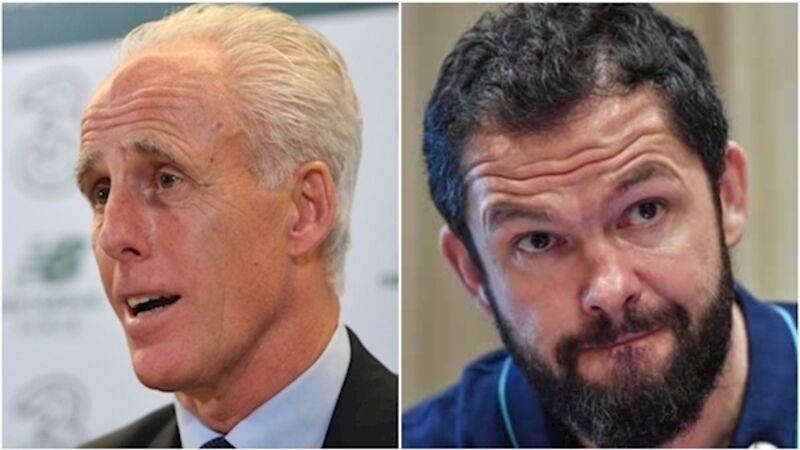Did Coronation Street pave way for Andy Farrell and Mick McCarthy?

Welcome Mick McCarthy (again). And welcome Andy Farrell (soon), writes .
The men who head, or will soon head, the national sides in football, soccer and rugger versions respectively, are both alike and not alike. They’re rugged individuals with considerable reputations in two tough businesses, but one is 43 and the other is 59. One is rugby, one soccer, etc.











